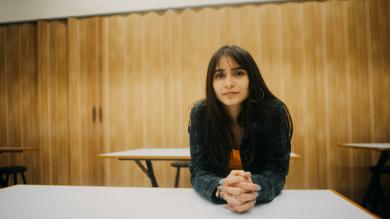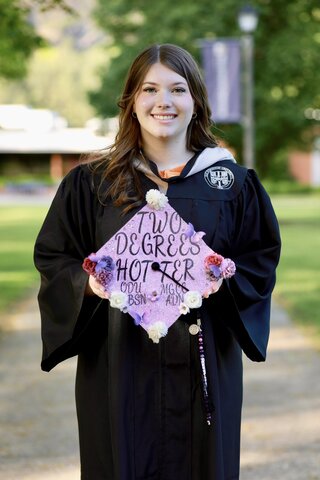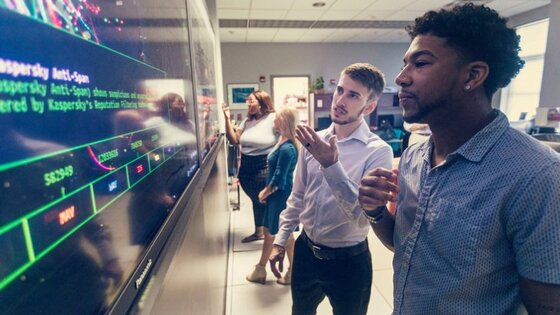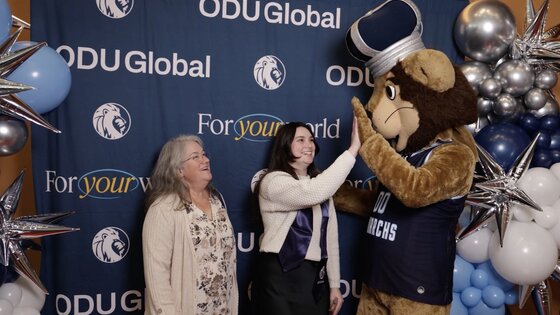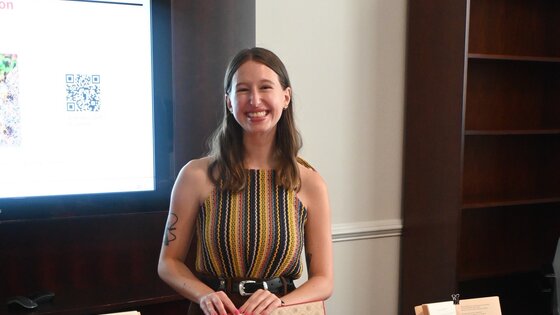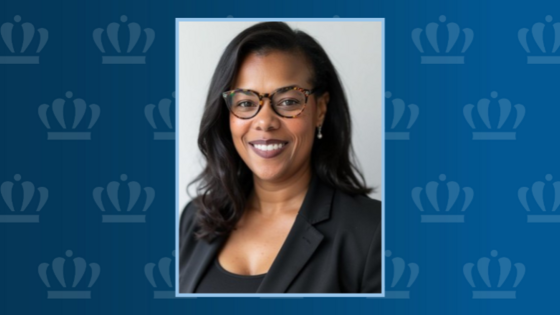At 17, Baylee Slagle is about to become ODU’s youngest graduate this year, earning her RN to BSN degree while volunteering as an EMT and overcoming a rare neurological condition.
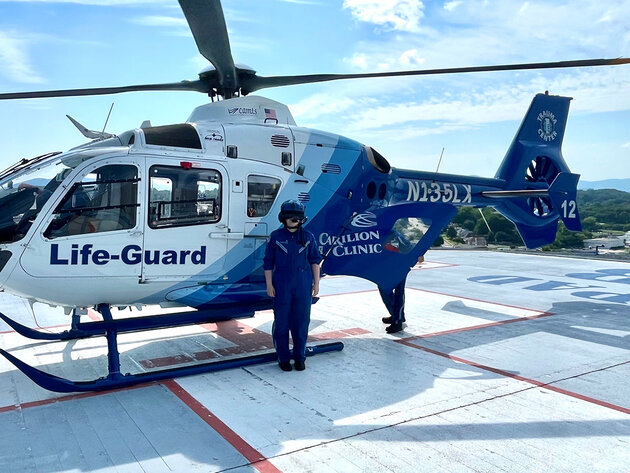
Baylee Slagle ’25 always knew her future involved helping others.
With both her mother and grandmother working in nursing, a calling to care was practically woven into her DNA. But even with a strong family tradition in healthcare, no one expected her journey to accelerate quite the way it did.
In May 2025, Slagle will graduate from Old Dominion University as the institution’s youngest graduate of the academic year, earning her RN to BSN online degree at just 17 years old.
“I don’t think the plan was ever to graduate before I turned 18,” she said with a laugh. “But things just started rolling, and I had momentum. People at ODU really helped push me forward.”
Slagle’s academic path began at a prestigious Virginia Governor’s School in Southwest Virginia. Driven and highly capable, she earned nearly 60 college credits in high school through her local community college. She completed her first associate degree just months after graduating high school and is on track to receive her associate degree in nursing from Mountain Gateway Community College, concurrently with her bachelor’s degree from ODU.
Along the way, she wasn’t just hitting the books. Slagle volunteered at the Lexington, Virginia fire department, earning EMS and EMT certifications and assisting with emergency calls.
“I started acclimating to school and work slowly and built up to where I could do both,” she said. “Online school has provided the flexibility and balance I’ve needed to pull it off.”
But the path hasn’t been without obstacles.
During her teenage years, Slagle was diagnosed with idiopathic intracranial hypertension (IIH), a rare neurological condition that causes elevated pressure inside the skull with no identifiable cause. Affecting only one to four women per 100,000, according to the National Institutes of Health, the diagnosis brought severe migraines, dizziness and tinnitus.
It was during her first advising session at ODU that she encountered an unexpected and emotional connection with her advisor, Yalana Orr, who revealed that her daughter had also been diagnosed with IIH.
“I remember we talked for like an hour and both cried,” Slagle said. “There aren’t many people you meet who have even heard of it, much less understand what it’s like. I’m so lucky to have found someone who could be such an amazing support system.”
Orr recalled instinctively wanting to shield her daughter from stress, even encouraging her to pause her education after her diagnosis.
“But both Baylee and my daughter are incredibly resilient,” Orr said. “Instead of stepping back, they used their diagnosis as motivation to move forward.”
With Orr’s support, Slagle and her daughter connected, finding strength in their shared experience and the understanding that their condition wasn’t a limitation.
Slagle’s experience with IIH not only shaped her resilience, but it also ignited a deeper interest in neurological nursing. Coming from a rural area where providers rarely encounter such cases, Slagle now sees her future in helping bridge the care gap for patients with limited access to specialized medicine.
“Rural communities might not have access to interventional radiology or bedside spinal taps, which is something I needed,” she said. “Being able to help folks who might not have access to the care they need is appealing.”
Her commitment to frontline care led her to a life-changing experience with Life-Guard, Virginia’s first air ambulance service.
“The people who work there are so smart, and it’s really inspiring to see them in action,” she said. “It’s just you and the patient, so you really have to be knowledgeable. It was one of the best days of my life.”
After graduation, Slagle will begin her career in the neurological intensive care unit at the University of Virginia. Her sights are set on becoming a flight nurse, with plans to return to school after gaining hands-on experience.
“I’d like to go back to school after taking some time in the field,” she said. “I’m still young. I’ve got plenty of time.”


